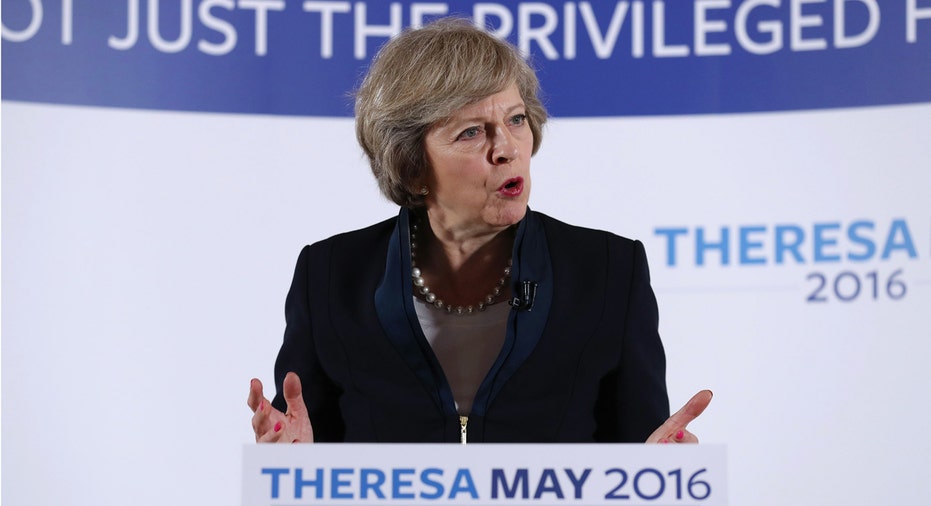U.K. to Seek Unique Deal with EU, Including Immigration Curbs

Prime Minister Theresa May and her top ministers on Wednesday agreed Britain would seek a unique relationship with the European Union, involving controls on immigration as well as a good trade deal.
After a summer of political earthquakes followed by a few weeks of holiday calm, May gathered her cabinet team for the first time since she asked them to use the break to come up with options for Britain's future ties with the bloc after a divorce.
For many in the EU, it is not before time. They have given May breathing space to devise a negotiating stance before triggering the exit procedure, but are keen for Britain to begin the talks and end uncertainty that has hurt investment.
"The PM said that there were two related imperatives: getting the best deal for people at home, and getting the right deal for Britain abroad," a spokeswoman for May said.
There was a "decisive view" that the model Britain was seeking would be unique rather than an "off-the-shelf solution".
"This must mean controls on the numbers of people who come to Britain from Europe but also a positive outcome for those who wish to trade goods and services," the spokeswoman added.
May told the cabinet meeting, held at her country residence, that there would be no second referendum and "no attempts to sort of stay in the EU by the back door".
The British leader has said she will not trigger Article 50 of the EU's Lisbon treaty to start the exit procedure until next year so she has time to come up with a negotiating stance. Her spokeswoman said cabinet agreed this could be done without seeking the backing of parliament, or the devolved nations of the United Kingdom.
Ministers also agreed on Wednesday the Brexit process should confirm Britain's place "as one of the great trading nations in the world".
Signs of economic confidence are rising after the initial shock of Britain's June 23 vote to leave the EU. A spokeswoman for May said her ministers had reiterated the government's commitment to fiscal discipline and living within its means.
IMMIGRATION
May's aides say that after considering her ministers' views, she will be the ultimate arbiter of what proposals Britain takes to divorce negotiations with the EU.
She will expect the cabinet to overcome divisions on whether Britain should leave the EU's single market to ensure control over immigration, or find some kind of a compromise.
May has stacked her three ministries for Brexit, trade and foreign affairs with some of the most active campaigners for Britain to leave the EU.
But she has balanced them by appointing to vital positions lawmakers who campaigned for Britain to remain in the bloc, such as Philip Hammond at the finance ministry, or Treasury.
The Telegraph newspaper reported that the two sides have disagreed over Hammond's view that access to the single market could be maintained "on a sector-by-sector basis", with Britain retaining a favourable status for its big financial sector.
Asked whether that was Hammond's stance, the Treasury declined to comment.
If it was, that would go against so-called Brexit minister David Davis, who heads the new Department for Exiting the European Union, and trade minister Liam Fox. Citing senior government sources, the Telegraph said both believe Britain can only curb immigration if the country leaves the single market.
On Tuesday, French President Francois Hollande seemed to back up that point, underlining that Britain could not opt in to certain parts of the single market without upholding the EU's four freedoms, including freedom of movement. (By Elizabeth Piper and Kylie MacLellan; Additional reporting by Kylie MacLellan; editing by Andrew Roche)



















